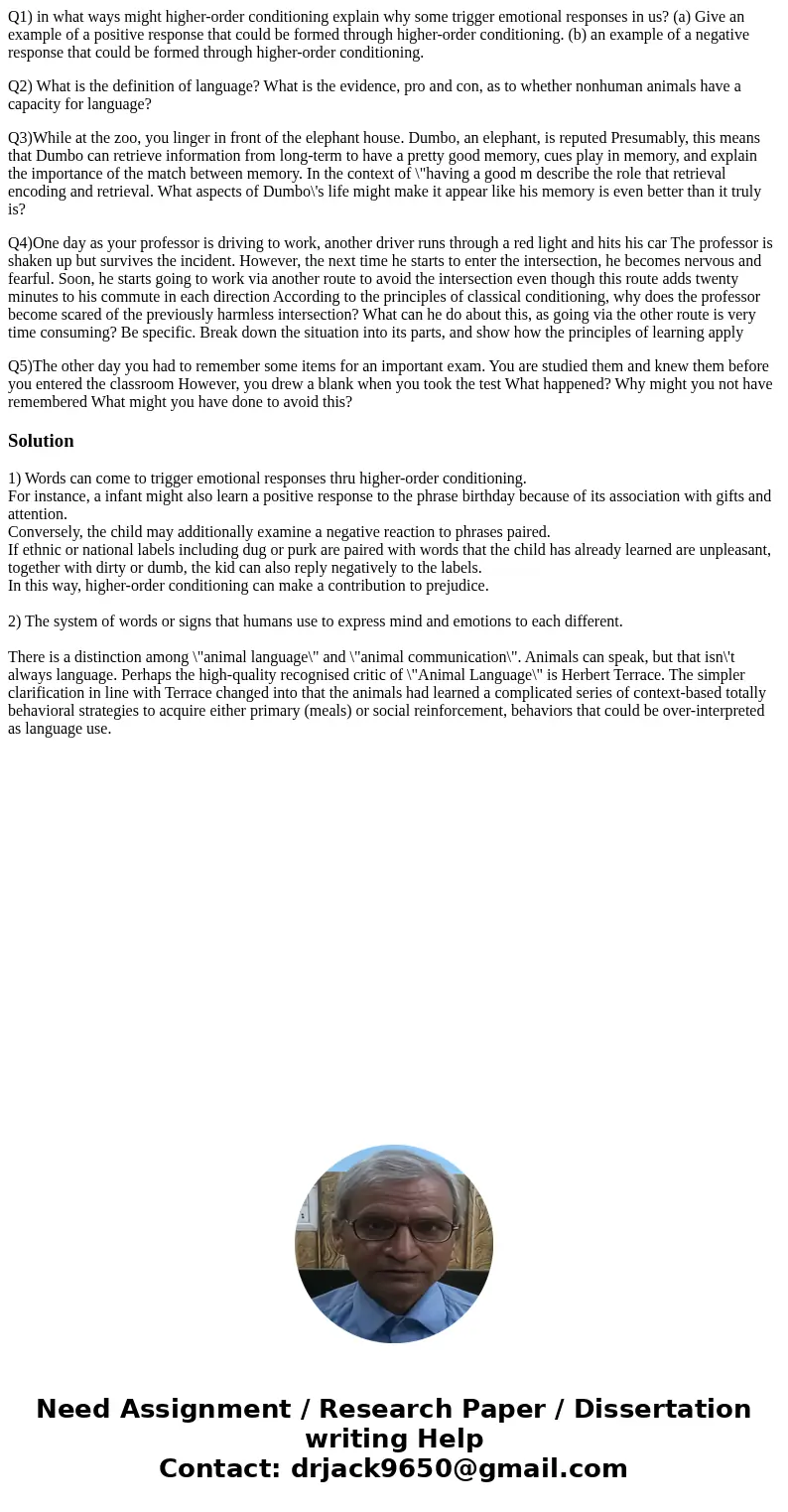Q1 in what ways might higherorder conditioning explain why s
Q1) in what ways might higher-order conditioning explain why some trigger emotional responses in us? (a) Give an example of a positive response that could be formed through higher-order conditioning. (b) an example of a negative response that could be formed through higher-order conditioning.
Q2) What is the definition of language? What is the evidence, pro and con, as to whether nonhuman animals have a capacity for language?
Q3)While at the zoo, you linger in front of the elephant house. Dumbo, an elephant, is reputed Presumably, this means that Dumbo can retrieve information from long-term to have a pretty good memory, cues play in memory, and explain the importance of the match between memory. In the context of \"having a good m describe the role that retrieval encoding and retrieval. What aspects of Dumbo\'s life might make it appear like his memory is even better than it truly is?
Q4)One day as your professor is driving to work, another driver runs through a red light and hits his car The professor is shaken up but survives the incident. However, the next time he starts to enter the intersection, he becomes nervous and fearful. Soon, he starts going to work via another route to avoid the intersection even though this route adds twenty minutes to his commute in each direction According to the principles of classical conditioning, why does the professor become scared of the previously harmless intersection? What can he do about this, as going via the other route is very time consuming? Be specific. Break down the situation into its parts, and show how the principles of learning apply
Q5)The other day you had to remember some items for an important exam. You are studied them and knew them before you entered the classroom However, you drew a blank when you took the test What happened? Why might you not have remembered What might you have done to avoid this?
Solution
1) Words can come to trigger emotional responses thru higher-order conditioning.
For instance, a infant might also learn a positive response to the phrase birthday because of its association with gifts and attention.
Conversely, the child may additionally examine a negative reaction to phrases paired.
If ethnic or national labels including dug or purk are paired with words that the child has already learned are unpleasant, together with dirty or dumb, the kid can also reply negatively to the labels.
In this way, higher-order conditioning can make a contribution to prejudice.
2) The system of words or signs that humans use to express mind and emotions to each different.
There is a distinction among \"animal language\" and \"animal communication\". Animals can speak, but that isn\'t always language. Perhaps the high-quality recognised critic of \"Animal Language\" is Herbert Terrace. The simpler clarification in line with Terrace changed into that the animals had learned a complicated series of context-based totally behavioral strategies to acquire either primary (meals) or social reinforcement, behaviors that could be over-interpreted as language use.

 Homework Sourse
Homework Sourse